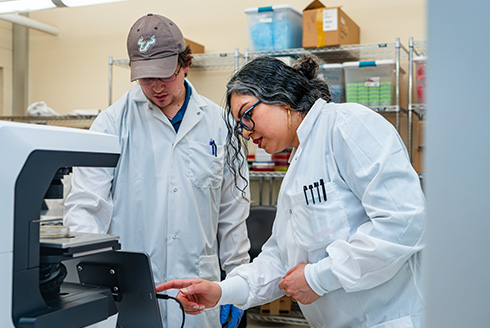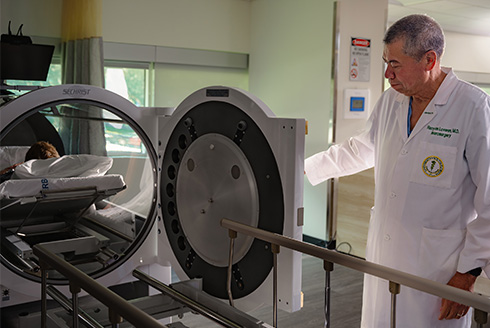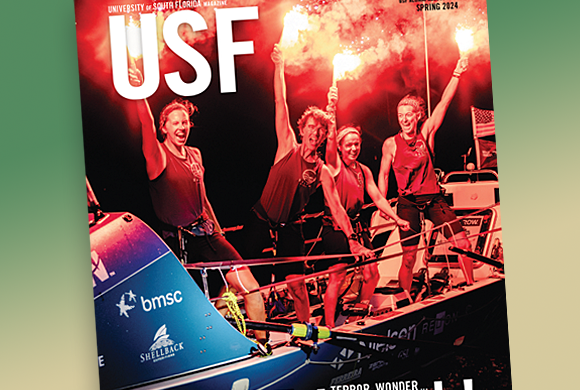University of South Florida News

USF graduates celebrate unwavering support, resiliency during fall commencement
Nearly 4,000 degrees were conferred during this fall’s commencement. The group, which represented 93 countries, 42 states and 11 U.S. territories, included 47 undergraduate students earning a perfect 4.0 grade point average and 107 military veterans. All now share a common theme – they are USF alumni.
December 16, 2024Student Success, University News

USF football claims Hawai’i Bowl in five-overtime thriller
The game against San Jose State was the longest in bowl history and the longest in USF history. This is the second year in a row for the Bulls to win a bowl game under head coach Alex Golesh.
December 25, 2024USF Athletics

USF sets new record with $738 million in research funding
The milestone comes during USF’s first full fiscal year as a member of the prestigious Association of American Universities and helps demonstrate its impact as one of the nation’s most research-intensive institutions. The new record brings the university closer to reaching its goal of securing $1 billion in annual research funding.
December 10, 2024Research and Innovation

How gift giving boosts your health and well-being
A USF Health expert explains how the simple act of giving can do more than spread holiday cheer and why it is the best gift you can give yourself this season.
December 19, 2024Research and Innovation

USF Health launches state-funded hyperbaric oxygen therapy trial with first patient
USF Health welcomed its first participants of a $28 million state-funded clinical trial to study the effectiveness of hyperbaric oxygen therapy on Florida service members and veterans who suffer from traumatic brain injury.
December 17, 2024Research and Innovation, USF Health
USF Magazine
Terror, Wonder … Triumph: Four marine scienctists rely on their friendships and remarkable strengths to win a harrowing 3,000-mile row across the Atlantic.
